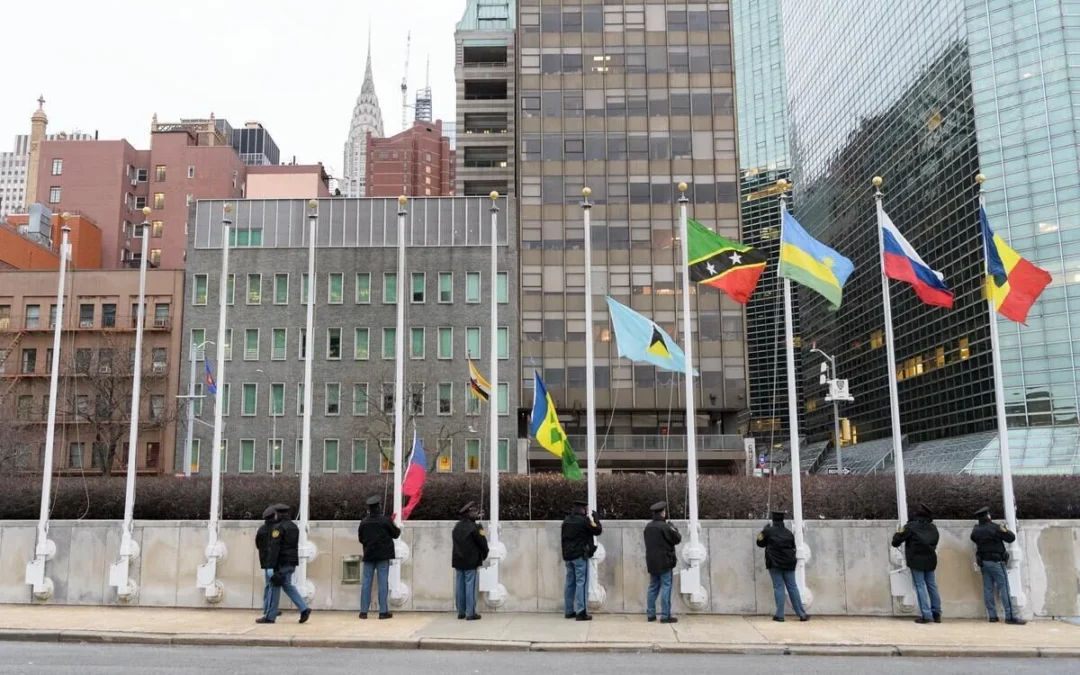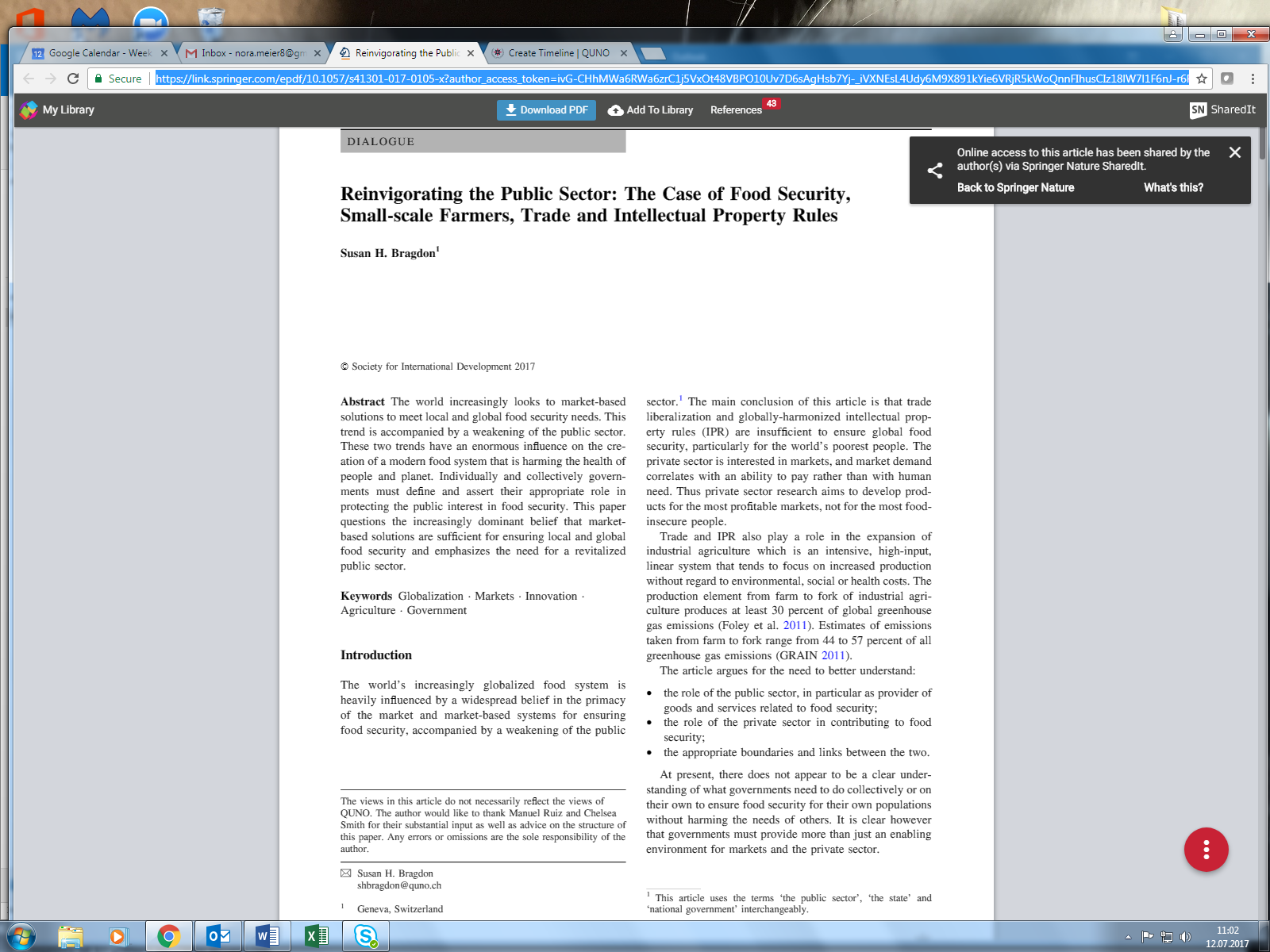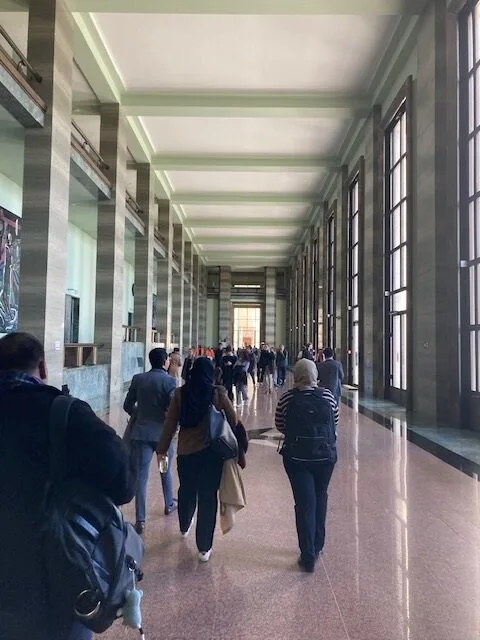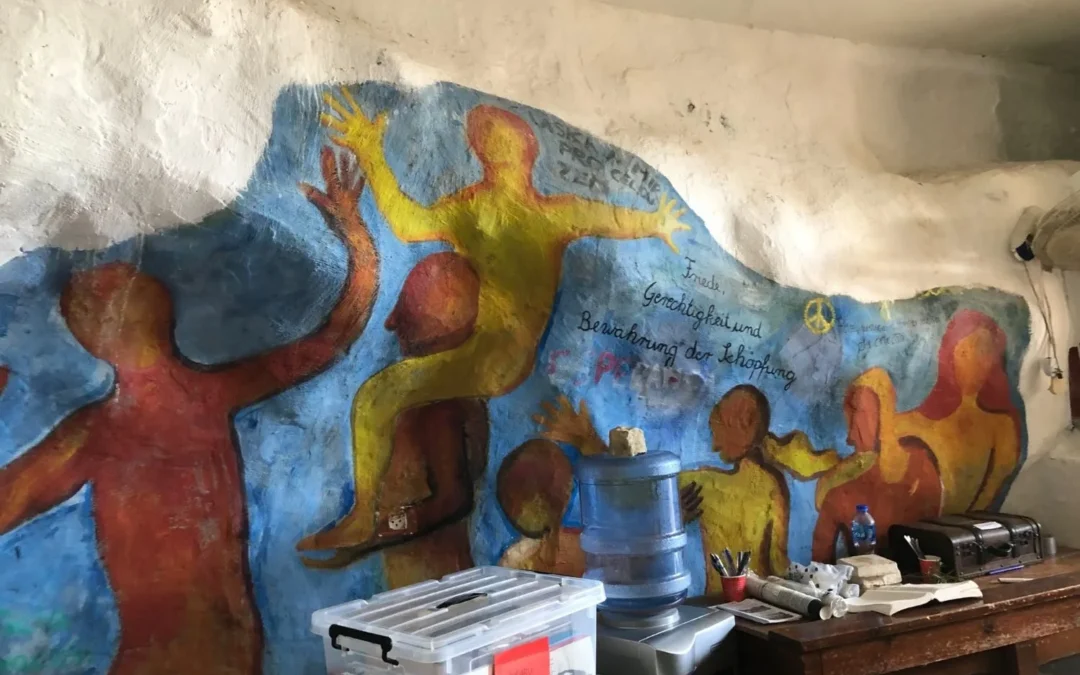In this recently published paper in the Society for International Development (2017), QUNO’s Food & Sustainability Representative Susan H. Bragdon explores the two interlinked trends of using market-based solutions to end hunger and the weakening of the public sector in ensuring local and global food security. She argues that both of these phenomena play an important role in the creation of a modern food system that is harming the health of people and planet. Therefore, she calls upon governments to define and assert their appropriate roles in the protecting the public interest in food security and emphasizes the need for a revitalized public sector.

Perseverance and Hope During Challenging Times
On 28 January 2026, UN Secretary-General Antonio Guterres wrote to all UN member states to warn that the UN is facing "imminent financial collapse". While it is not unusual for the Secretary-General to raise alarm about...






